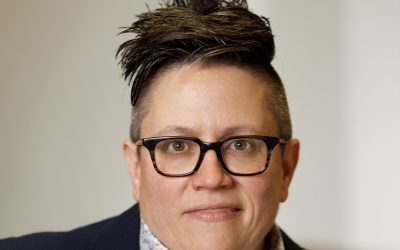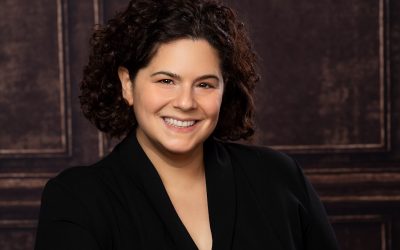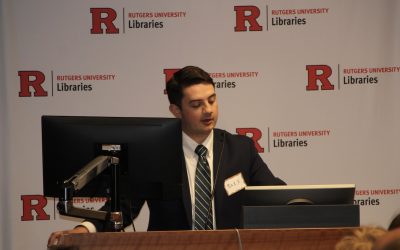On having a purpose, fiction v. nonfiction and emotion.
Enlarge

February 2019 – Award-winning author Mitchell Jackson talked shop and read from his forthcoming memoir, Survival Math: Notes on an All-American Family, during an appearance at Drew University.
Jackson, a guest of the University’s Writers@Drew series, earned a Whiting Award and The Ernest J. Gaines Prize for Literary Excellence for his debut novel, The Residue Years. After reading at the event, which co-sponsored by The Casement Fund and the English Department, he answered questions from students. Here are five interesting answers.
1. Do you always have a plan when you sit down to write?
“I don’t think I have a plan, but I have a purpose. Residue took 15 years. I wrote the first words in 1998. It came out in 2013. Around 2011 I sent it to a mentor and I thought he’d love it. He said, ‘Jackson, throw it out now. Whatever’s good in there is going to stick with you.’ I had to make the decision as to whether I was going to listen to this guy who was like a deity for me, or if I was going to stick with this thing that I had been working on for years. So, I decided that I was going to keep working on it. I think that’s most important to me—the commitment. Once you decide to do it, you do it.”
2. Do you veer between fiction and nonfiction?
“I think that coming from fiction to nonfiction was the best route because a fiction writer has the most tools in terms of the kind of nonfiction that I want to create. They understand story and structure and central conflict. They understand subtext and dialogue. I think they should have some facility with the poetics. The fiction writer that cares about sentences, to me, is the most powerful. And so that can lend itself when you need to figure out how to shape something in nonfiction. I can see things differently because I’m coming from fiction.”
Enlarge

3. How different were the emotional processes when writing your two books?
“They actually were pretty similar, I think because I was forthright about the first one being autobiographical. It told the truth about my mother and my relationship and her struggles with addiction and my incarceration, so there was very little for me to hide behind in Survival Math. I’m saying all the hard stuff. I’m not bulletproof, but I feel very strong because I’ve already said all the tough things. Now, I also have not let my family members read this yet.”
4. What’s the relationship between literature and activism?
“I can’t see mass incarceration. I can’t see the prison-industrial complex. I can’t see the school-to-prison pipeline. But, I used to work in a program called BookUp with the National Book Foundation, and I’d go to a middle school in a depressed neighborhood and we would just read books. I’d have a bunch of really eager readers, but there would always be at least a few kids that didn’t want to read and some of them didn’t read that well. The predictors of who goes to prison, you can mark it in the fourth grade. So, I can’t see the prison-to-college pipeline, but I can see the young man or young woman in my class who can’t read that well and then wonder, ‘What is this going to do to their future?’ I think that stories have a way of making us see that in a way that reading the data does not.”
5. How do you avoid being overly vulnerable in your writing?
“I think the more vulnerable you are, the stronger you are. If you’re willing to say it, then that’s a strength, because when you say it, they can’t. They don’t have control over it when you’re saying it. I would look at it the other way around: if I say these things, it gives me strength on the page.”


